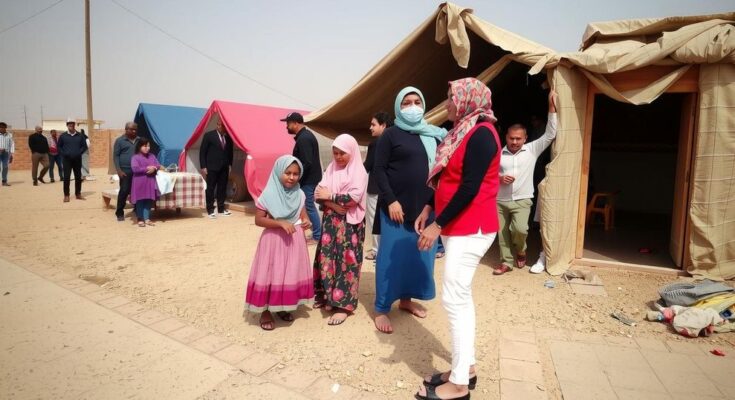Egypt is experiencing an economic crisis that has caused a shift in perceptions about refugees. Historically welcoming, the country now views newcomers as potential burdens, which has led to calls for international assistance. Prominent figures in media have echoed such sentiments, reflecting broader societal frustrations regarding the implications of increased migration on local resources and social dynamics.
Egypt is currently grappling with an economic crisis that has compelled its leaders to reassess their stance on refugees. In earlier years, prominent figures, such as Azza Mostafa, a pro-government TV anchor, advocated for welcomed foreign populations. However, recent reports indicate a marked shift in rhetoric, reflecting growing frustration among Egyptians regarding the influx of migrants from countries like Syria, Sudan, and Yemen. This change suggests that while refugees have historically been seen as part of Egypt’s diverse fabric, they are now being perceived as contributors to economic strain and social challenges.
The context of this shift is rooted in Egypt’s ongoing economic difficulties exacerbated by regional instability. Economic challenges stemming from conflicts in neighboring countries, including Gaza and Sudan, have fueled perceptions of refugees as both a burden and a potential means of leveraging international support. Increasingly, Cairo seeks aid from the West while simultaneously addressing domestic dissatisfaction among its citizens.
Cairo has long been a refuge for displaced individuals from various crises, fostering a diverse community of migrants. However, the tighter control over immigration and the harsh critique of incoming populations indicate a significant change. Ms. Mostafa’s recent statements illustrate the underlying anxiety regarding rising costs, particularly in terms of housing and socio-economic impacts attributed to these groups. Her allegations include claims of increased living costs, attributing shifts in local customs, and querying the acceptability of foreign presence amid economic woes.
Egypt has historically been a host country, welcoming thousands fleeing war and conflict from neighboring regions, such as Syria, Sudan, and Gaza. The country has been viewed as a sanctuary for those seeking stability and safety amidst their struggles. This acceptance has, however, shifted as Egypt’s economic circumstances deteriorate, leading to rising tensions regarding resource allocation and societal integration, particularly as conflicts in the region continue to drive migration.
In summary, Egypt’s approach to refugees is undergoing a profound transformation due to economic pressures and rising public discontent. Although once regarded as essential contributors to the cultural fabric, newcomers are increasingly being scapegoated amid financial strain. The need for international aid to alleviate these pressures is evident, yet the growing perception of refugees as a liability complicates the discourse surrounding their presence in Egypt.
Original Source: www.nytimes.com




